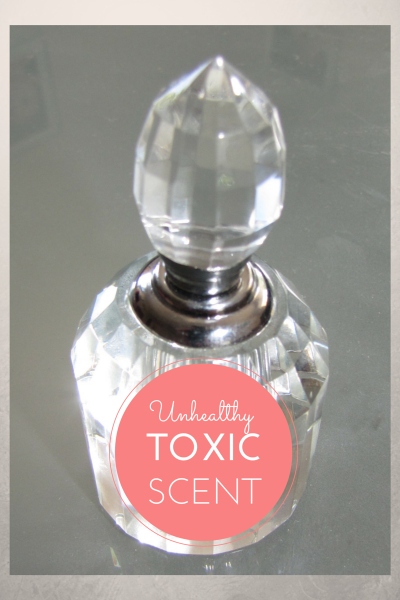 Synthetic Perfumes Are Making Us Sick
Synthetic Perfumes Are Making Us Sick
Does your perfume give you a headache, make you feel dizzy, a little nauseous or trigger your asthma and give you a rash? While they might smell good, synthetic perfumes are making us sick.
Perfume Ingredients Not Listed
Synthetic perfumes can be made up of a combinations of around 3000 ingredients, 900 which are considered toxic; e.g Diethyl Phthalate, Musk Ketone and DEP which can damage human sperm, store itself in human fat and breast milk, along with causing a wide range of unpleasant allergic reactions.
Unfortunately for the consumer, perfume designers are not required by law to list all their ingredients and it seems consumer safety is second to the profit from sales of designer fragrances and scented products.
There are safer options as listed down below, but first find out why you should forgo synthetically scented products.
Modern Perfumes Are The Problem
Perfumes have been used for centuries. In ancient times one would collect herbs and flowers and scent themselves with the oils from these pure, natural ingredients.
In the last half a century, perfumes have taken a very synthetic turn. Petrochemicals and a huge variety of unlisted, both natural and synthetic scent chemicals are the ingredients of choice and now smelling good can have serious health repercussions.
No Safety Testing of Fragrances
You may think that each country’s government health sector, monitors and tests fragrance products before they are allowed to be sold to consumers. This is not the case. The fragrance industry is governed by the fragrance industry. The fragrance industry is self-regulating and governing bodies like the FDA do not seems to interfere.
See – The Danger of Toxic Consumer Products, Fragrances by Professor Samuel S Epstein.
This article Does Perfume Have Hidden Health Risks by Web MD reports on testing done on 17 of the worlds most famous designer fragrances and the results were alarming. Each of the different fragrances tested, averaged around 14 different chemicals, some of which are linked to respiratory illness and others that are known hormone disruptors.
Read David Suzuki’s take on Fragrances & Perfumes
Synthetic Perfumes Are Poisoning Us
When we spray, or apply to our skin, perfume, or any fragranced skin or hair care product, the unknown synthetic ingredients are absorbed through our skin and also inhaled into our bodies, where they accumulate.
Also, synthetically fragranced cleaning products and air-fresheners can have serious health concerns and some even contain plasticizers. See my article
Synthetic Air Fresheners Are Actually Poisoning Us
Synthetic Perfumes And Pregnancy
When a pregnant woman use synthetic perfumes and synthetically fragranced products, she risks exposing her unborn child to these toxic chemicals.
See Products That Have & Have Not Been Tested For Safety In Pregnancy
and A Pregnant Woman’s Guide To Safer Beauty Treatments,
For newborn babies, it is best to steer clear of anything scented, even if it is completely natural. According to some health experts, even pure lavender oil can be too potent and have adverse health effects on very young babies. For the first few first month of their lives babies really only need to be bathed in plain water. Also avoid fragranced baby wipes, nappies and laundry detergents and fabric softeners.
Safer Natural Perfume Options
No, don’t worry, you certainly don’t have to forgo all that smells good. You just need to swap over to natural, fragranced products, that not only smell good, but are safe to use and in some cases, like certain essential oils, also have positive health benefits.
- Opt for 100% natural, botanical, oil based perfumes, lotions and potions. There are some wonderful ethical, cruelty-free accredited companies making traditional, beautiful hand-made perfumes and scented skin & hair care products.
- Make your own. There are plenty of great recipes for natural perfumes, using essential oils and plant carrier oils. Be sure to use only 100% pure grade, essential oils, from a certified cruelty free company, as the cheap ‘so-called’ essential oils are not always all they seem. Also ensure the essential oils you choose to use for your scent are safe for skin application.
- When buying natural perfumes and scented beauty and household fragrance products, please ensure you check that they are completely cruelty free and approved by Cruelty Free International and their Leaping Bunny Programme.
Before you leave, if you enjoyed this article sign up to LivingSafe and stay informed! LivingSafe helping you live healthier & safer.
Some other natural health and safety articles you may find interesting are:
How To Live A Cruelty Free Lifestyle Checklist
Scent Your Home Naturally & Safely by Christie McIntosh
Leave a Reply
You must be logged in to post a comment.